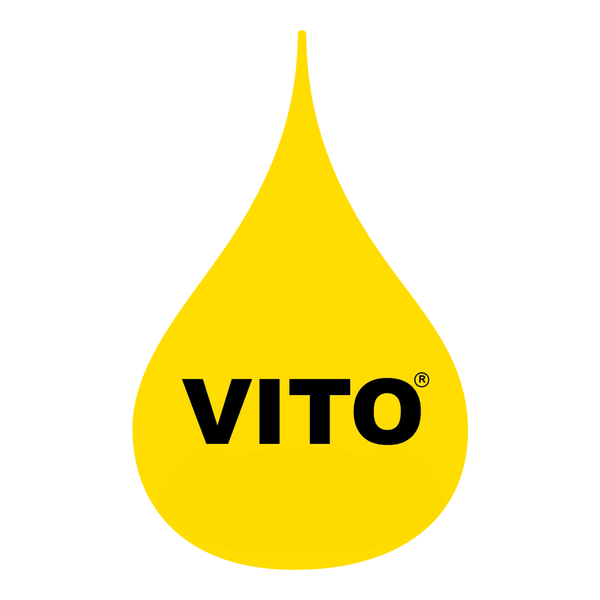
Which Cooking Oil is Good for Health?
Share
Which Cooking Oil is Good for Health? Let’s Talk
So, you’ve been staring at the cooking oil section, wondering, “Which one’s actually good for me?” I get it. There are so many options—olive oil, coconut oil, animal fats—it’s kind of overwhelming. Honestly, I’ve been there too. And to be real, picking the right oil isn’t as simple as it seems.
Olive Oil: The Mediterranean Go-To
Let’s start with olive oil. You’ve probably heard it’s good for you, and honestly, that’s pretty true. Extra virgin olive oil, especially, is full of those good fats that are great for your heart. Plus, it’s got some antioxidants that help keep inflammation down.
One thing to note is that olive oil has a smoke point of around 375°F (190°C). So, it’s suitable for most cooking, but if you’re planning on high-temperature frying, you might want to choose something else. I’ve been using olive oil for years—mostly for salads or drizzling over roasted veggies. For anything low-heat or just adding a bit of flavor, it’s a solid choice.
Coconut Oil: The Versatile One
Next up, coconut oil. It’s been kind of popular lately, and for good reason. It’s packed with medium-chain triglycerides (MCTs), which your body can turn into energy pretty easily. But, I mean, it’s still high in saturated fat, so maybe don’t go overboard.
Now, while coconut oil has some potential benefits, it’s still a bit of a debate among experts, especially regarding its impact on cholesterol levels. So, moderation is key here. I like to use coconut oil for certain dishes—like when I’m making curries or baking something that needs that hint of coconut flavor. It’s not something I use every day, but it’s great when the recipe calls for it.
Animal Fats: Old School but Good
Let’s talk about animal fats like butter, ghee, lard, and tallow. These have been around forever, and honestly, there’s something comforting about that. They’re stable at high temperatures, so they’re good for frying, roasting, and stuff like that. Plus, if you’re getting them from grass-fed animals, they’ve got some good vitamins in them too.
That said, while these fats can be part of a healthy diet, it’s super important to enjoy them in moderation. There’s still ongoing debate about saturated fats and heart health, so it’s worth being mindful of how much you’re using. In my kitchen, I use ghee for sautéing veggies and butter for scrambling eggs. The flavor you get is just, well, it’s hard to beat. It’s like going back to basics, and sometimes, that’s exactly what you need.
Avocado Oil: The New Favorite
Avocado oil's kind of like the new favorite. It’s got a high smoke point—around 520°F (271°C)—so, you know, it works pretty well for grilling or frying. Plus, it’s rich in monounsaturated fats, which are good for your heart.
I tried avocado oil a while back, and honestly, it’s been great. I’ve been reaching for it more often now, especially when I need something that doesn’t mess with the flavor of whatever I’m cooking. It’s a bit pricey, but for the quality, I think it’s worth it.
Cost and Usage: What Restaurants Choose
Let’s be real—when you’re running a restaurant, you’ve got to think about cost. You need something that’s healthy but won’t break the bank. That’s why seed oils like canola and soybean oil are popular—they’re cheap and can handle high heat.
But here’s the thing: more chefs are starting to think twice about these choices. In places that focus more on health or higher-end dining, you’re likely to see olive oil, avocado oil, or even animal fats being used instead. Sure, they cost more, but the flavor and health benefits often make up for it.
I’ve seen this shift myself. Finding that balance between cost and quality is key. Seed oils might save you money upfront, but switching to better fats can really make a difference, especially for your customers.
The Lowdown on Seed Oils
So, let’s talk about seed oils like canola, sunflower, and soybean oil. They’re everywhere because they’re cheap and neutral in flavor. But they’re also high in omega-6 fatty acids. And here’s the thing—omega-6s aren’t all bad; we need them. The problem is, most of us get way too much compared to omega-3s, and that can lead to inflammation. Not really what you want, right?
Plus, the way these oils are made usually involves high heat and chemicals, which can create some not-so-great stuff. So, while they’re convenient, I’ve found that they’re probably not the best choice for your health. That said, if you’re consuming them in moderation and balancing them with omega-3-rich foods like fish or flaxseeds, they can be part of a balanced diet. I used to use seed oils all the time, mainly because they were cheap and easy to cook with. But after learning more about them, I’ve started to phase them out for better options.
So, Which Cooking Oil is Good for Health?
Alright, so what’s the verdict? Which cooking oil is actually good for your health? Honestly, it depends on what you’re cooking. Here’s a quick rundown:
- Olive oil: Great for low-heat cooking and finishing dishes. It’s rich in heart-healthy fats and antioxidants.
- Coconut oil: Versatile for higher heat, but maybe use it in moderation because of the saturated fat.
- Animal fats (butter, ghee, lard, tallow): Perfect for high-heat cooking, but again, moderation is key.
- Avocado oil: Ideal for high-heat cooking with a mild flavor and plenty of health benefits.
- Seed oils: Okay in moderation, especially when balanced with omega-3-rich foods, but I’d suggest being mindful of how much you’re using.
To be real, even the healthiest fats should be used in moderation. Balance is key—mix it up, listen to your body, and don’t be afraid to try different oils and fats in your kitchen. In my experience, avoiding too many seed oils and focusing on these alternatives has made a big difference in how I feel and how my food tastes.
And hey, if you ever want to chat more about what’s working in your kitchen, I’m always here. We’re all just trying to make healthier choices, one meal at a time.
Sources:
-
Cleveland Clinic. (2023, June 12). The benefits of olive oil: What’s new and improved. Cleveland Clinic Health Essentials. https://health.clevelandclinic.org/benefits-of-olive-oil
-
WebMD. (n.d.). Health benefits of extra virgin olive oil. WebMD. https://www.webmd.com/diet/health-benefits-extra-virgin-olive-oil
-
Groves, M. (2023, March 15). Top 10 evidence-based health benefits of coconut oil. Healthline. https://www.healthline.com/nutrition/top-10-evidence-based-health-benefits-of-coconut-oil
-
Healthline. (2023, March 20). 9 evidence-based health benefits of avocado oil. Healthline. https://www.healthline.com/nutrition/9-avocado-oil-benefits
-
Mayo Clinic. (n.d.). The pros and cons of seed oils and how to incorporate them in your diet. Mayo Clinic Press. https://mcpress.mayoclinic.org/nutrition-fitness/the-pros-and-cons-of-seed-oils-and-how-to-incorporate-them-in-your-diet
-
Cleveland Clinic. (2023, May 5). Seed oils: Are they actually toxic? Cleveland Clinic Health Essentials. https://health.clevelandclinic.org/seed-oils-are-they-actually-toxic



